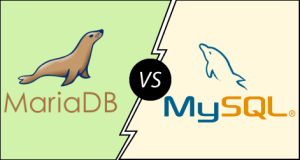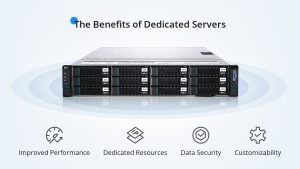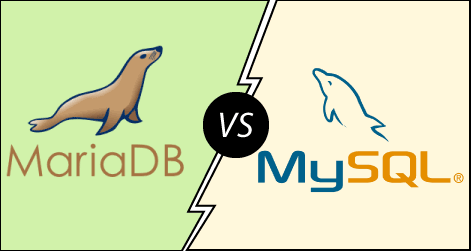AlmaLinux OS

AlmaLinux OS is a free and open-source, enterprise-grade Linux distribution that is widely used for web servers. It was created as a community-driven alternative to CentOS, after Red Hat shifted CentOS to a rolling release model known as CentOS Stream. Here’s a detailed overview of AlmaLinux OS in web server environments:
1. Overview of AlmaLinux OS
- Enterprise Linux Fork: AlmaLinux is a downstream, 1:1 binary-compatible fork of Red Hat Enterprise Linux (RHEL). It provides stability, long-term support, and security updates, making it suitable for enterprise environments, including web hosting.
- Community-Driven: The AlmaLinux OS Foundation manages the distribution, with input from a wide community of developers and users. It is designed to be a free, open-source alternative to RHEL, with no licensing costs.
- Replacement for CentOS: AlmaLinux is designed to fill the gap left by the transition of CentOS to CentOS Stream, making it a popular choice for web server administrators who prefer a stable, predictable release cycle.
2. Key Features for Web Servers
- Stability and Long-Term Support: Like CentOS and RHEL, AlmaLinux is designed to be stable for production environments, with long-term support (LTS) and regular security updates. This is crucial for maintaining secure and reliable web servers.
- Binary Compatibility with RHEL: AlmaLinux is fully compatible with RHEL and other RHEL-based distributions, which means that any software built for RHEL can run on AlmaLinux without modification. This includes popular web server software like Apache, Nginx, PHP, and MySQL.
- Security Patches and SELinux: AlmaLinux provides regular security patches to protect web servers from vulnerabilities. It also includes SELinux (Security-Enhanced Linux) by default, which enhances security by enforcing strict access controls over applications and services.
3. Advantages of AlmaLinux OS for Web Servers
- Cost-Effective: AlmaLinux is free and open-source, making it an affordable solution for hosting websites and web applications without the licensing costs associated with RHEL.
- Enterprise-Grade Performance: AlmaLinux provides the same level of performance, security, and stability as RHEL, making it suitable for high-traffic, enterprise-grade web hosting environments.
- Familiarity: For administrators coming from a CentOS or RHEL background, AlmaLinux provides a familiar environment with the same tools, package management (YUM/DNF), and directory structure.
- Broad Software Support: AlmaLinux is compatible with the EPEL (Extra Packages for Enterprise Linux) repository, offering access to a wide range of additional software packages commonly used in web hosting.
- Container Support: AlmaLinux supports containerization technologies like Docker and Podman, allowing web server administrators to easily deploy containerized applications and microservices.
4. Web Server Setup on AlmaLinux
AlmaLinux supports the most commonly used web server stacks and frameworks, allowing it to host a wide range of web services:
- LAMP Stack: AlmaLinux can be used to deploy the classic LAMP stack (Linux, Apache, MySQL/MariaDB, PHP/Perl/Python), which is commonly used for hosting dynamic websites and web applications.
- LEMP Stack: AlmaLinux also supports the LEMP stack (Linux, Nginx, MySQL/MariaDB, PHP/Perl/Python) for hosting websites with the lightweight and high-performance Nginx web server.
- SSL/TLS and Security: AlmaLinux can be configured to serve websites over HTTPS by installing certbot and obtaining SSL/TLS certificates from Let’s Encrypt, ensuring secure communication for web services.
- Database Management Systems: Popular database systems like MySQL, MariaDB, PostgreSQL, and SQLite can be easily installed and managed on AlmaLinux, providing backend support for web applications.
5. Advantages for Web Hosting Providers
- Control Panels: AlmaLinux is fully compatible with popular web hosting control panels like cPanel, Plesk, and DirectAdmin, which simplifies server management, domain setup, email hosting, and other web hosting-related tasks.
- Shared Hosting: AlmaLinux is well-suited for shared hosting environments, where multiple websites are hosted on a single server. The OS’s stability and security features ensure reliability for multiple users.
- Virtual Private Servers (VPS): AlmaLinux is frequently used in VPS hosting setups. Its resource efficiency makes it suitable for virtualized environments, where multiple isolated instances of the OS can run on the same physical server.
6. Security Features
- SELinux: AlmaLinux enforces Security-Enhanced Linux (SELinux) by default, providing robust access control policies that protect against unauthorized access to services and applications, critical for web servers.
- FirewallD: AlmaLinux supports FirewallD, a dynamic firewall management tool, which can be used to set up security rules for web services, helping to prevent unauthorized access to the server.
- Automatic Updates: AlmaLinux can be configured to automatically apply security patches and updates to web server components, ensuring that critical vulnerabilities are addressed without manual intervention.
7. Use Cases for AlmaLinux OS in Web Hosting
- Enterprise Web Hosting: AlmaLinux is used by businesses for hosting mission-critical web applications that require high availability, stability, and security.
- Small and Medium-Sized Business (SMB) Hosting: Due to its cost-effectiveness and compatibility with CentOS/RHEL, AlmaLinux is popular among SMBs for hosting their websites and applications.
- Cloud and VPS Hosting: AlmaLinux is well-supported by cloud service providers and VPS hosting platforms, making it a flexible solution for scalable cloud-based web hosting.
- E-Commerce Websites: Many e-commerce websites require secure, high-performance hosting environments. AlmaLinux, with its enterprise-grade security features, is an excellent option for such applications.
8. Community and Support
- Community Support: AlmaLinux has a growing and active community that provides support via forums, mailing lists, and documentation. This ensures web server administrators can find help when troubleshooting or configuring their servers.
- Enterprise Support: For businesses that need professional support, companies like CloudLinux (the sponsors behind AlmaLinux) offer paid support plans.
9. Comparison with Alternatives
- Vs. CentOS Stream: AlmaLinux offers a stable release model, whereas CentOS Stream follows a rolling-release model with faster updates but less stability for production environments. AlmaLinux is preferred by users seeking the traditional CentOS stability.
- Vs. Rocky Linux: Rocky Linux, like AlmaLinux, is a community-driven alternative to CentOS, and both share the same goals of providing a stable RHEL-compatible OS. The choice between the two comes down to community preference and specific needs, as both offer similar functionality for web hosting.
- Vs. Ubuntu: Ubuntu is another popular choice for web servers. AlmaLinux is preferred by users familiar with RHEL/CentOS environments, whereas Ubuntu is more popular for developers and cloud environments due to its package management system (APT) and broader community support.
AlmaLinux OS is a versatile, enterprise-grade Linux distribution that can be used in various applications across different industries due to its stability, security, and compatibility with the Red Hat Enterprise Linux (RHEL) ecosystem. Here are some key applications of AlmaLinux OS:
1. Web and Application Hosting
Web Servers: AlmaLinux is commonly used for hosting websites using web servers like Apache, Nginx, or Lighttpd. It provides a stable and secure environment for managing web content and services.
LAMP/LEMP Stack Hosting: AlmaLinux supports the LAMP (Linux, Apache, MySQL/MariaDB, PHP) and LEMP (Linux, Nginx, MySQL/MariaDB, PHP) stacks, which are widely used for deploying dynamic web applications.
Content Management Systems (CMS): AlmaLinux is ideal for hosting CMS platforms like WordPress, Joomla, and Drupal, allowing developers to create and manage websites with ease.
2. Database Servers
MySQL/MariaDB Hosting: AlmaLinux is frequently used to host MySQL and MariaDB databases, offering reliability for managing large-scale data-driven applications.
PostgreSQL: AlmaLinux supports PostgreSQL, a powerful relational database, making it suitable for applications that require advanced database features and high performance.
NoSQL Databases: AlmaLinux can host NoSQL databases like MongoDB, Cassandra, and Redis for applications that require flexible, scalable data storage solutions.
3. Cloud and Virtualization
Cloud Infrastructure: AlmaLinux is widely supported on cloud platforms like AWS, Google Cloud, and Microsoft Azure. It’s used to run scalable, cloud-based applications, making it a popular choice for cloud-native environments.
Virtualization: AlmaLinux supports virtualization technologies like KVM (Kernel-based Virtual Machine) and is often used as a guest OS for virtual machines in cloud environments or in on-premises data centers.
Containers and Microservices: AlmaLinux works well with container technologies like Docker and Podman, making it suitable for deploying microservices architectures and containerized applications in DevOps workflows.
4. Enterprise Resource Planning (ERP) and Customer Relationship Management (CRM)**
ERP Systems: AlmaLinux is used to host ERP systems like Odoo and ERPNext, enabling businesses to manage their operations, finances, and resources effectively.
CRM Systems: AlmaLinux can support CRM software like SuiteCRM and vTiger, allowing businesses to manage customer relationships, sales, and marketing processes efficiently.
5. DevOps and CI/CD
DevOps Tooling: AlmaLinux is a popular platform for running DevOps tools like Jenkins, GitLab CI, and Ansible, making it a great option for building, testing, and deploying applications.
CI/CD Pipelines: AlmaLinux is frequently used to set up Continuous Integration/Continuous Delivery (CI/CD) pipelines, allowing developers to automate the process of building, testing, and deploying code.
6. File and Storage Servers
Network Attached Storage (NAS): AlmaLinux can be used to create file servers for storing and managing data across networks. Tools like Samba and NFS (Network File System) can be used for sharing files with other systems.
Backup Servers: AlmaLinux is used in backup solutions where critical data is stored securely, ensuring businesses can recover from data loss or system failures.
7. Cybersecurity and Penetration Testing
Security Servers: AlmaLinux can host various security tools for monitoring and defending systems, such as fail2ban, ClamAV, and firewalls.
Penetration Testing: While not specifically designed for pen testing, AlmaLinux can be configured to run security and penetration testing tools, making it suitable for cybersecurity research and testing environments.
8. Networking and DNS Services
DNS Servers: AlmaLinux can run DNS services with software like BIND, enabling it to act as a domain name server, translating domain names into IP addresses.
DHCP and VPN Servers: AlmaLinux can also be used to configure DHCP servers for dynamic IP management or to set up VPN servers for secure remote access.
9. Mail Servers
Email Hosting: AlmaLinux can be configured as an email server using software like Postfix, Dovecot, and Roundcube, offering businesses the ability to host and manage email services securely.
Spam and Virus Filtering: With tools like SpamAssassin and ClamAV, AlmaLinux can be used to filter out spam emails and detect malicious attachments.
10. High-Performance Computing (HPC)
Scientific Research: AlmaLinux is often used in high-performance computing environments for scientific research, machine learning, and simulations. It supports parallel computing tools like OpenMPI and HPC libraries.
Data Analytics: AlmaLinux can run data analytics platforms, such as Hadoop or Spark, for processing large datasets and big data applications.
11. Game Servers
Game Hosting: AlmaLinux can be used to host game servers for popular online games. It offers a stable and efficient platform for running game engines, modding tools, and server-side scripts.
Multiplayer Services: AlmaLinux can also host multiplayer services, matchmaking, and content distribution for gaming communities.
12. Robust Backup and Disaster Recovery Systems
Backup Automation: AlmaLinux supports tools like Bacula, rsync, and Amanda for managing automated backup and disaster recovery systems, ensuring data resilience.
Disaster Recovery: AlmaLinux can also be deployed in disaster recovery setups to quickly restore critical services in the event of hardware failure or cyberattacks.
13. IoT and Edge Computing
IoT Platforms: AlmaLinux can be used in edge computing environments for hosting IoT platforms and devices, providing processing power close to the data source for latency-sensitive applications.
Edge Servers: AlmaLinux supports lightweight and robust configurations for edge servers, enabling it to handle localized processing tasks in IoT networks.
14. Custom Applications
Software Development Platforms: AlmaLinux is often used by developers to build and deploy custom applications, especially for enterprises that require proprietary software solutions.
Custom Web Applications: Many businesses use AlmaLinux to host custom-built web applications using popular development frameworks like Django, Ruby on Rails, Laravel, and Flask.
15. Blockchain and Cryptocurrencies
Blockchain Nodes: AlmaLinux can host full blockchain nodes for cryptocurrencies like Bitcoin, Ethereum, or custom blockchain projects, providing the infrastructure to validate and store transactions.
Decentralized Applications (dApps): AlmaLinux can serve as the backend infrastructure for decentralized applications, enabling smart contracts and blockchain-based solutions to run efficiently.
Advantages of AlmaLinux OS
1. RHEL Compatibility
AlmaLinux is fully binary-compatible with Red Hat Enterprise Linux (RHEL)**. This means it can run any software or application built for RHEL without modification, making it an excellent choice for enterprise environments.
2. Free and Open Source
AlmaLinux is completely free to use, with no licensing fees or subscription costs. It’s a fully open-source project supported by a community-driven foundation.
3. Long-Term Support (LTS)
AlmaLinux OS offers long-term support, with stable release cycles and regular security patches. This makes it ideal for businesses and enterprises needing a reliable OS with predictable updates.
4. Stability for Production Environments
Like CentOS, AlmaLinux is known for its stability and reliability, making it ideal for production servers, web hosting, and critical applications where downtime is not an option.
5. Security and SELinux
AlmaLinux OS includes SELinux (Security-Enhanced Linux) for robust security, allowing administrators to enforce strict access controls. It also receives timely security patches, making it a secure option for enterprises.
6. Wide Community and Enterprise Support
AlmaLinux OS has a growing, active community that provides support through forums, mailing lists, and documentation. For businesses needing professional support, companies like CloudLinux offer paid support plans.
7. Compatibility with CentOS Tools and Packages
AlmaLinux OS is a natural choice for those migrating from CentOS due to its similar environment. It is compatible with cPanel, DirectAdmin, and other tools traditionally used in CentOS setups.
8. Cloud and Virtualization-Friendly
AlmaLinux OS is well-supported by cloud providers such as AWS, Google Cloud, and Microsoft Azure, and works seamlessly in virtualized environments using KVM and VMware. It’s also container-friendly, supporting Docker, Podman, and Kubernetes.
9. Enterprise-Level Performance
AlmaLinux OS offers enterprise-grade performance with high reliability and scalability, making it suitable for high-traffic applications, e-commerce, and business-critical services.
Disadvantages of AlmaLinux OS
1. Smaller Community than CentOS or Ubuntu
While AlmaLinux OS is growing in popularity, its community is smaller than more established distributions like Ubuntu or CentOS. This means less community-generated content, fewer tutorials, and possibly less third-party support.
2. Not as Developer-Focused as Ubuntu
AlmaLinux OS is more geared towards enterprise and server environments, and might not be as developer-friendly or widely adopted for desktop usage compared to Ubuntu, which offers a broader range of user-friendly tools and developer-focused features.
3. Less User-Friendly for Beginners
AlmaLinux OS , like other RHEL-based distributions, may require a higher level of technical knowledge, especially when compared to Ubuntu or Debian. It is more suited for system administrators and enterprise-level users rather than casual users.
4. Limited Desktop Usage
While AlmaLinux OS is stable, its focus on server and enterprise applications means it lacks some of the user-centric features that make distributions like Ubuntu or Fedora more attractive for desktop users.
5. Migration Challenges from CentOS
Although AlmaLinux OS is designed to be a replacement for CentOS, some migration challenges may arise due to differences in future updates or support policies, especially for long-term users of CentOS 7.
6. Lack of Rolling Release Model
Unlike CentOS Stream or some other distributions (like Arch Linux), AlmaLinux OS follows a traditional release model with scheduled updates. This might not be ideal for users looking for a cutting-edge or bleeding-edge software environment.
7. Smaller Ecosystem
AlmaLinux’s software repository, while extensive, may not have as broad a range of **third-party software** and community-built packages as more mainstream Linux distributions like Ubuntu or Debian.
8. Enterprise Support is Optional
AlmaLinux OS relies heavily on its community for support, and although enterprise support is available, it typically comes at a cost. Businesses needing extensive, hands-on support may need to invest in paid support services, unlike RHEL, where support is integrated.
AlmaLinux OS is a reliable, secure, and cost-effective solution for web hosting. It provides a stable platform for hosting websites, web applications, and services, with enterprise-grade features and compatibility with the CentOS ecosystem. For businesses and developers who prefer the RHEL-based environment, AlmaLinux offers a strong, community-driven alternative to CentOS for managing web servers.








